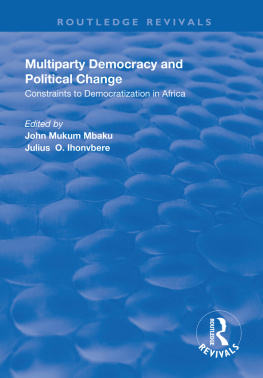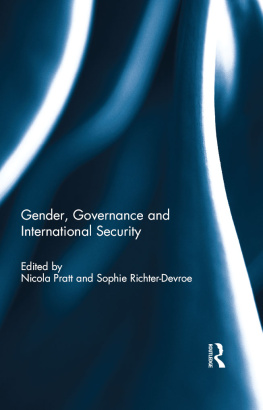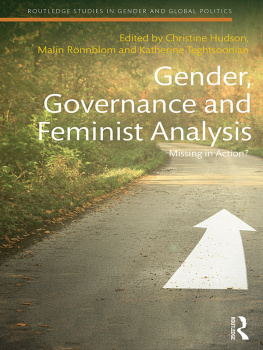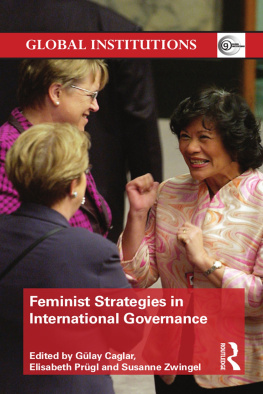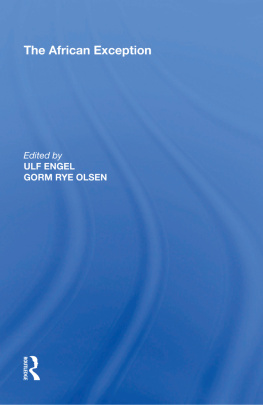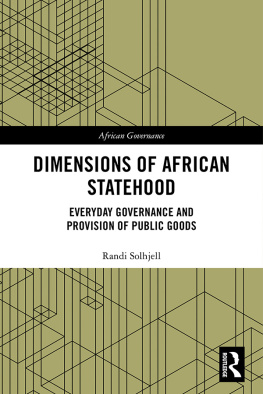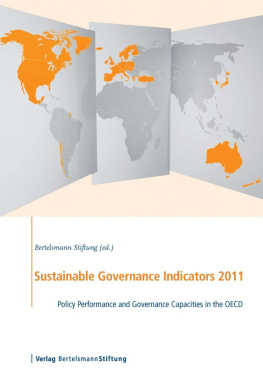African Women, ICT and Neoliberal Politics
How can we promote people-centered governance in Africa? Cell phones/information and communications technology (ICT) are shown to be linked to neoliberal understandings of more democratic governance structures, defined by the Worldwide Governance Indicators as: the rule of law, corruption-control, regulation quality, government effectiveness, political stability/no violence, and voice and accountability. However, these indicators fall short: they do not emphasize gender equity or pro-poor policies.
Writing from an African feminist scholar-activist perspective, Assata Zerai emphasizes the voices of women in two ways: (1) she examies how womens access to ICT makes a difference to the success of people-centered governance structures; and (2) she demonstrates how African womens scholarship, too often marginalized, must be used to expand and redefine the goals and indicators of democratic governance in African countries.
Challenging the status quo that praises the contributions of cell phones to the diffusion of knowledge and resultant better governance in Africa, this book is an important read for scholars of politics and technology, gender and politics, and African Studies.
Assata Zerai is Professor of Sociology at the University of Illinois at Urbana-Champaign. Her interests have included maternal and child health (MCH), health activism, safe water and sanitation, ICT in Africa and the African Diaspora, and making the intellectual work of African women scholars and activists more accessible; as well as U.S.-based studies of MCH, Black feminist praxis, and diversity and LGBTIQ inclusiveness in Protestant congregations. Her recent books include Safe Water, Sanitation and Early Childhood Malnutrition in East Africa: An Africana Feminist Analysis of the lives of Women and Children in Kenya, Tanzania and Uganda (Zerai and Brenda N. Sanya, eds, Rowman & Littlefield, Lexington Books, 2018); Intersectionality in Intentional Communities: The Struggle for Inclusivity in Multicultural U.S. Protestant Congregations (Rowman & Littlefield, Lexington Books, 2016); and Hypermasculinity and State Violence in Zimbabwe: An Africana Feminist Analysis of Maternal and Child Health (Africa World Press, 2014).
Routledge Studies on Gender and Sexuality in Africa
The Tunisian Womens Rights Movement
From Nascent Activism to Influential Power-broking
Jane D. Tchacha and Khdija Arfaoui
Disability and Sexuality in Zimbabwe
Voices from the Periphery
Christine Peta
Love, Sex and Teenage Sexual Cultures in South Africa
16 Turning 17
Deevia Bhana
African Women, ICT and Neoliberal Politics
The Challenge of Gendered Digital Divides to People-Centered Governance
Assata Zerai
African Women, ICT and Neoliberal Politics
The Challenge of Gendered Digital Divides to People-Centered Governance
Assata Zerai
First published 2019
by Routledge
2 Park Square, Milton Park, Abingdon, Oxon OX14 4RN
and by Routledge
711 Third Avenue, New York, NY 10017
Routledge is an imprint of the Taylor & Francis Group, an informa business
2019 Assata Zerai
The right of Assata Zerai to be identified as author of this work has been asserted by her in accordance with sections 77 and 78 of the Copyright, Designs and Patents Act 1988.
All rights reserved. No part of this book may be reprinted or reproduced or utilised in any form or by any electronic, mechanical, or other means, now known or hereafter invented, including photocopying and recording, or in any information storage or retrieval system, without permission in writing from the publishers.
Trademark notice: Product or corporate names may be trademarks or registered trademarks, and are used only for identification and explanation without intent to infringe.
British Library Cataloguing-in-Publication Data
A catalogue record for this book is available from the British Library
Library of Congress Cataloging-in-Publication Data
Names: Zerai, Assata, 1964 author.
Title: African women, ICT and neoliberal politics : the challenge of gendered digital divides to people-centered governance / Assata Zerai.
Other titles: Routledge studies on gender and sexuality in Africa ; 4.
Description: New York City : Routledge, 2018. |
Series: Routledge studies on gender and sexuality in Africa ; 4 | Includes bibliographical references.
Identifiers: LCCN 2018019006 | ISBN 9781138559363 (hardback) | ISBN 9780203712856 (ebook) | ISBN 9781351363648 (mobipocket)
Subjects: LCSH: WomenAfricaSocial conditions. | Womens rightsAfrica. | Sex discriminationAfrica. | TelecommunicationAfrica. | WomenPolitical activityAfrica.
Classification: LCC HQ1787 .Z47 2018 | DDC 305.42096dc23
LC record available at https://lccn.loc.gov/2018019006
ISBN: 978-1-138-55936-3 (hbk)
ISBN: 978-0-203-71285-6 (ebk)
Typeset in Times New Roman
by Out of House Publishing
Contents
| AfDB | African Development Bank Group |
| CEDAW | Convention on the Elimination of All Forms of Discrimination against Women |
| CPIA | Country Policy and Institutional Assessment Index |
| DHS | Demographic and Health Surveys |
| ICT | Information and Communications Technology |
| IDHS | Integrated Demographic and Health Surveys |
| IPV | Intimate partner violence |
| MWDHS | Malawi Demographic and Health Surveys |
| TDHS | Tanzania Demographic and Health Surveys |
| WDI | World Development Indicators |
| WGI | Worldwide Governance Indicators |
| ZDHS | Zimbabwe Demographic and Health Surveys |
How can we promote people-centered governance on the Africa continent and beyond? Written from an African feminist scholar-activist perspective, this work emphasizes the voices of women and demonstrates how their framings are important when we consider the impact of science and technology in society. A mechanism that impedes the influence of African feminist thought and decelerates its impact on governance is examined, namely that encumbered access to information and communications technology (ICT) among women on the African continent (and in its Diaspora) creates barriers to communal discourse and problem solving.
Asongu and Nwachukwu (2016) have recently shown that cell phones/ICT are linked to neoliberal understandings of more democratic governance structures, defined Worldwide Governance Indicators (WGI) and promoted by the World Bank as: the rule of law, corruption-control, regulation quality, government effectiveness, political stability/ no violence and voice and accountability by (Kaufmann et al. 2010). However, this definition deviates from more social justice oriented governance approaches. I argue that in key areas these androcentric neoliberal indicators of democratic governance fall short; they do not emphasize gender equity or pro-poor policies seen in social justice approaches to democratic governance. To better understand and promote people-centered governance in Africa, in this book I emphasize the voices of women in two ways: (1) I examine how womens access to ICT makes a difference to the success of creating more people-centered governance structures; and (2) I demonstrate how African womens and gender-sensitive scholarship, too often marginalized, must be used to expand and redefine the goals and indicators of democratic governance in African countries.


